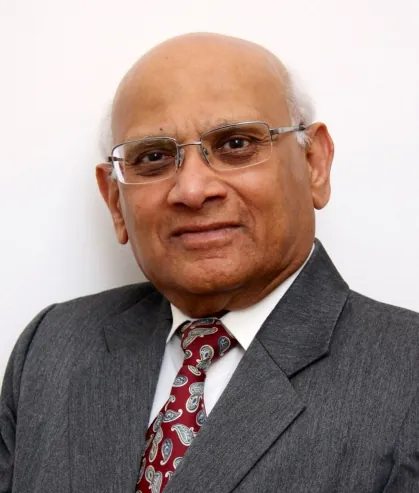
Dr. Vinod P. Shah, Ph.D.
(Formerly with US FDA)
Pharmaceutical Consultant
North Potomac, MD., USA
2024 Presentations
Dissolution / In vitro drug release testing has evolved from quality control tool to a highly valuable and powerful tool for assurance of drug product quality and performance.
Its application has expanded to all areas in the pharmaceutical industry, sky is the limit.
Its application and usefulness have entered in regulatory arena of bioequivalence, to assure product sameness after SUPAC related changes, to provide biowaiver for lower strengths of orally administered drug products and for BCS Class 1 and 3 drugs, thus reducing regulatory burden in drug approval process. Several FDA guidances and USP chapters are in place relative to dissolution / drug release.
The field of dissolution is dynamic in nature; the knowledge in dissolution science is advancing globally in all types of pharmaceutical dosage forms, including complex drugs.
The area of physiologically based modeling and simulations and use of biorelevant media are being explored to get better handle on in vivo predictability.
Dissolution (in vitro release) is essential and inevitable, and its future is ‘strong’.
Dissolution testing is now recognized as a gold standard for product performance testing.
2023 Presentations
Non-Biological Complex Drugs (NBCD) are medicinal products, not being a biological medicine, where the active substance/vehicle is a polydisperse structure and consists of different (closely related) structures that cannot be fully quantitated, characterized and or described by physico-chemical analytical means. The composition and quality of NBCD are highly dependent on the manufacturing process and controls. Examples of NBCD include iron-carbohydrate complex, glatiramoids, liposomes, swelling polymers – sevelamer, ocular emulsions etc. Generic version of small molecules is approved when they are considered pharmaceutically equivalent and bioequivalent to the innovator product. This paradigm does not hold for NBCD products. For these complex drug products, a similarity approach rather than an equivalent approach is proposed. A simplified pathway for approval of such products will be presented and discussed.
2022 Presentations
The term biowaiver is applied to a regulatory drug approval process when the drug product is approved based on evidence of equivalence other than in vivo bioequivalence test. For solid oral dosage forms, biowaiver(s) is generally based on dissolution test(s). Application of biowaiver reduce regulatory burden without sacrificing the drug product quality. Biowaiver criteria for lower strengths of IR and MR dosage forms and BCS class 1 and 3 drug products will be discussed.
What are complex Generics? A Complex Generic is a generic that could have a complex active ingredient, complex formulation, complex route of delivery, or a complex drug device combination. Complex generics are inherently difficult to duplicate. Drug release from complex generics plays an important role in product development and drug approval process. A significant amount of research is supported by FDA to address in vitro and in vivo methodology for complex generics. Examples of complex generics and some of the research tools utilized will be discussed.
About the speaker:
Dr. Shah is a pharmaceutical consultant. He is now Chair of Regulatory Sciences Special Interest Group of International Pharmaceutical Federation (FIP), and an Adjunct Faculty at JSS University, India. He is a Member of Honor of Romanian Academy of Medical Sciences (2002). Dr. Shah is a Member of Board of Directors of Product Quality Research Institute (PQRI).
Dr. Shah retired from US FDA (Food and Drug Administration) as a Senior Research Scientist after 30 years of service in July 2005. While at FDA, he has developed several Regulatory Guidances for Pharmaceutical Industry in the area of dissolution, SUPAC, bioequivalence and biopharmaceutics. He has received several FDA Awards including Award of Merit, Scientific Achievement Award and Distinguished Career Service Award.
Dr. Shah is author/co-author of over 300 scientific papers and is a co-editor of four books. Dr. Shah was the President of American Association of Pharmaceutical Scientist (AAPS) in 2003. He is a Fellow of AAPS and FIP. Dr. Shah is a recipient of AAPS Distinguished Service Award, Pharmaceutical Sciences World Congress (PSWC) Research Achievement Award, FIP Lifetime Achievement Award in Pharmaceutical Sciences, Honorary Doctorate from Semmelweis University, Hungary and from University of Medicine and Pharmacy Carol Davila Bucharest, Romania.
